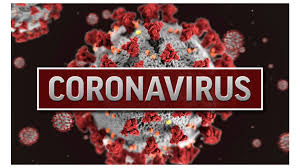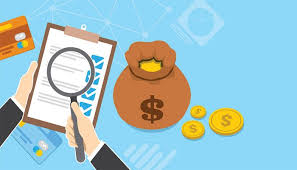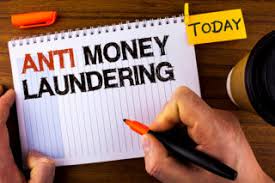Bank Secrecy Act Compliance During the COVID-19 Crisis

Elizabeth Slim, Senior Consultant at The Volkov Law Group, joins us for a posting on AML and BSA compliance during the current pandemic crisis. Elizabeth can be reached at [email protected].
The COVID-19 outbreak has affected all of us and we now face the new normal of self-quarantine and social distancing. As Anti-Money Laundering (AML) professionals, we are still required to ensure that financial institutions maintain a safe and sound Bank Secrecy Act (BSA) program.
If you haven’t done so, now is the time to take proactive steps to mitigate your risks and prepare for disruptions to your operations as staff members are out ill or self-quarantined due to being exposed to the virus.

Know and accept that your resources are stretched thin, but hunker down, team up with your lines of business and prioritize your compliance functions.
Here is a short list of top risk issues for your consideration but not limited to the following:
- Sanctions screening must continue to be a priority and you can turn to your lines of business (e.g., operations, credit, wire and human resources) to help monitor and report to the compliance officer, potential positive hits for review.
- AML transaction monitoring systems may need to be adjusted due to transactional changes in customer’s behavior such as increase in cash withdrawals, electronic banking (mobile apps) and an uptick of using virtual currency.
- Incapability to file BSA reports within the mandated timeframes due to staff shortages. FinCEN recently issued a news release for financial institutions impacted by COVID-19 to contact FinCEN and their federal and state regulating agency (e.g., FDIC, FRB, IRS, OCC, SEC)[1] to discuss possible delays or inability to file BSA reports (CTRs, SARs, DOEPs, FBARs).

- Financial fraud scams are on the rise. Unfortunately, many people in the workforce are faced with business shutdowns with no pay or unemployment and may be tempted by an opportunity for financial assistance. The criminals or bad actors are taking advantage of this situation with what has now been identified as COVID-19 cyber scams. On 03/20/2020, Attorney General William Barr issued a news release “urging the public to report suspected fraud schemes related to COVID-19”[2]. FinCEN also issued a news release on 03/16/2020 to be on alert to illicit financial activity[3]. Other agencies such as the Securities and Exchange Commission (SEC), World Health Organization (WHO), Federal Trade Commission (FTC) and Food and Drug Administration (FDA), Federal Bureau of Investigations (FBI) and Interpol have issued statements concerning COVID-19 related scams and can be found on their respective websites.
Several of the scams involve the following:
- Imposter Scams: fraudsters who attempt to act on behalf of a
charity or government agency (e.g., Red Cross, IRS, Centers for Disease Control
and Prevention, Social Security Administration, Crowdfunding, etc.) to solicit donations and/or obtain
personal/private information.
- Investment Scams: attempts by bad actors presenting investment scams or promotions regarding products or services that make claims to detect or cure COVID-19.
- Product Scams: marketing ads or letters selling unapproved or misbranded products that make false health claims to prevent or cure COVID-19.
- Insider Trading: SEC and FinCEN are receiving reports regarding COVID-19 related to insider trading.
- Phishing Scams: emails sent by a fraudster claiming to be a legitimate company and imbeds a hyperlink for the receiver to click and open which can download an infected file or persuade the receiver to provide personal/private information.
- Lottery Scams: direct mailings sent to victims with a notification of winning an international lottery with instructions to provide personal/private information. A check for a few thousand dollars may be included in the mailing with instructions to negotiate and remit a majority of the funds back to pay for administrative fees. The check is a counterfeit check and the victim’s bank account is drained of money.
Many of the frauds identified above were also alerted by FinCEN in October 2017[4] related to disaster fraud.
Send constant communications to your colleagues to provide information and reminders of the fraud typologies and if possible, conduct training for employees to help spot and report financial scams for review and investigations.

If your organization has allowed employees to work remotely, reach out to your staff to stay in touch and hold end of day or weekly conference/video calls to share updates and information that may affect them and your organization.
This epidemic also produces anxiety and stress for employees that are confused about COVID-19. Granted everyone is challenged in some way but remind your team that you are in this together.
Remind your colleagues to reach out to Human Resources if your organization subscribes to an Employee Assistance Program, and point your employees to credible websites to obtain current information on COVID-19 such as the Centers for Disease Control (www.cdc.gov), World Health Organization (www.who.int), Whitehouse Coronavirus Task Force (www.coronavirus.gov) and your state or city may have established a dedicated site for information.
Hang in there everyone.
Take comfort that you are not alone and utilize this opportunity to show
support for one another. This too shall
pass.
The Volkov Law Group hopes that you stay safe
and health
[1] FinCEN news released Monday, March 16, 2020 FinCEN Encourages Financial Institutions to Communicate Concerns Related to the Coronavirus Disease 2019 (COVID-19) and to Remain Alert to Related illicit Financial Activity.
[2] Department of Justice news, released Friday, March 20, 2020 Attorney General William P. Barr Urges American Public to Report COVID-19 Fraud | OPA | Department of Justice.
[3] FinCEN news released Monday, March 16, 2020 FinCEN Encourages Financial Institutions to Communicate Concerns Related to the Coronavirus Disease 2019 (COVID-19) and to Remain Alert to Related illicit Financial Activity.
[4] FinCEN Advisory, FIN-2017-A007 Advisory to Financial Institutions Regarding Disaster-Related Fraud. https://www.fincen.gov/sites/default/files/advisory/2017-10-31/FinCEN%20Advisory%20FIN-2017-A007-508%20Compliant.pdf















